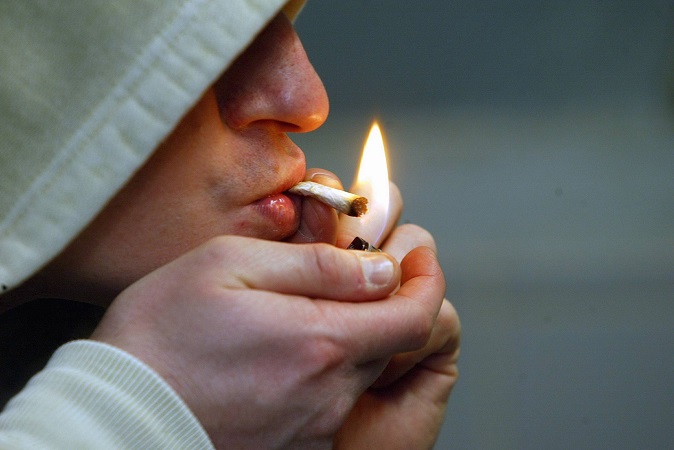Self-understanding helps criminal substance abusers
Researchers from Aarhus BSS have developed the treatment programme Impulsive Lifestyle Counselling, which helps substance abusers who also suffer from impulsive and criminal behaviour.

Impulsiveness, crime and problems with social interaction. Many substance abusers also struggle with antisocial personality disorders, which makes it difficult for them to complete a drug or alcohol treatment programme. New research from the Centre for Alcohol and Drug Research at Aarhus BSS reveals that just six additional counselling sessions may lower the drop-out rate and increase the outcome of the treatment programme.
A total of 175 substance abusers with antisocial personality disorders took part in the project. 80 of these were offered a standard treatment programme, and out of these, 54 per cent dropped out. For the remaining 95 participants, the standard treatment was supplemented by the Impulsive Lifestyle Counselling programme. Among these participants, the drop-out rate was 42 per cent, and three months later, they were also taking fewer drugs than participants on the standard programme.
“The participants on the Impulsive Lifestyle Counselling programme had a lower drop-out rate than both other people with antisocial personality disorders and substance abusers in treatment in general. This shows us that we can increase the help for people who are impulsive and who, as a result, live a life of instability,” says Associate Professor Morten Hesse, who is responsible for the research project together with Associate Professor Birgitte Thylstrup, both from Aarhus BSS.
The researchers are hoping that the treatment can be used in both the social sector and the Prison and Probation Service, which offer only few treatment programmes for people with antisocial personality disorders. These people are typically regarded as very difficult to treat and they rarely seek treatment themselves, apart from when they have problems with drug abuse.
Focus on behaviour and consequences
The Impulsive Lifestyle Counselling programme consists of six structured sessions. The sessions focus on the participant’s dreams and aspirations in life, and on how the impulsive and criminal behaviour stands in the way of their dreams.
“One of the participants had trashed his apartment, because his girlfriend had spent a night at a friend’s house without telling him. Instead of debating whether the anger was fair or not, the counsellor and the participant considered the consequences - the flat was trashed, and the girlfriend left him. This motivated the participants to find other ways of reacting,” explains Morten Hesse.
In the programme, crime and impulsive behaviour are seen as a way of life rather than a diagnosis. This makes it easier to talk about the problems without stigmatising the participant as a criminal or as a patient.
Simple methods that work
In the research project, the Impulsive Lifestyle Counselling programme was conducted by staff at the treatment facilities after taking a course of just one and a half days. The positive effect of the programme was achieved despite the fact that the participants only showed up for three sessions on average. Morten Hesse does not rule out that other types of motivational counselling may have a similar effect, but he sees great advantages of the Impulsive Lifestyle Counselling programme in particular.
“Many treatment facilities experience high staff turnover rates. They need simple methods that are easy to learn. That’s why we have developed the Impulsive Lifestyle Counselling programme as a structured manual, which does not require the counsellor to be a formally trained therapist,” says Morten Hesse.
FACTS
Impulsive Lifestyle Counselling - about the programme
The treatment programme consists of six hours of individual session on the following topics:
- Thoughts and behaviour related to antisocial personality structure
- Impulsive behaviour and immediate consequences
- Impulsive behaviour in relation to pride and self-worth
- Values that may support or prevent changes
- Social support
- Follow-up
The different topics are presented, and the participants may work with examples from their own life if they wish to.
The manual has been developed by Birgitte Thylstrup and Morten Hesse from the Centre for Alcohol and Drug Research, Aarhus BSS taking point of departure in the programme “Lifestyle Issues” developed by G.D. Walters.
You can find the manual on the website of the Centre for Alcohol and Drug Research:
http://psy.au.dk/forskning/forskningscentre-og-klinikker/center-for-rusmiddelforskning/
Further information:
Associate Professor Morten Hesse
Telephone: 4587165343
Mobile: 21664936
Email: mh.crf@psy.au.dk
Associate Professor Birgitte Thylstrup
Telephone: 4587165336
Mobile: 21587881
Email: bt.crf@psy.au.dk
Research articles:
Impulsive lifestyle counselling to prevent dropout from treatment for substance use disorders in people with antisocial personality disorder : A randomized study. / Thylstrup, Birgitte; Hesse, Morten.
In: Addictive Behaviors, Vol. 57, 2016, s. 48-54.
Psycho-education for substance use and antisocial personality disorder : A randomized trial. / Thylstrup, Birgitte; Schrøder, Sidsel; Hesse, Morten.
In: BMC Psychiatry, Vol. 15, 283, 14.11.2015.